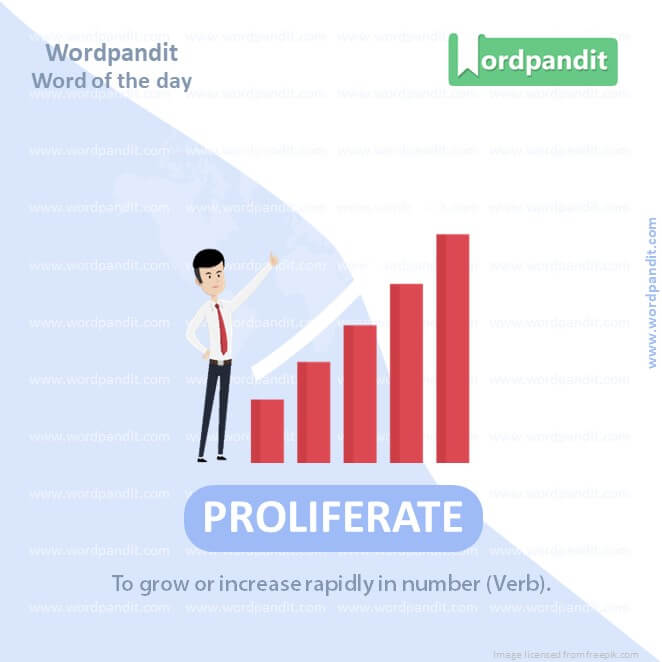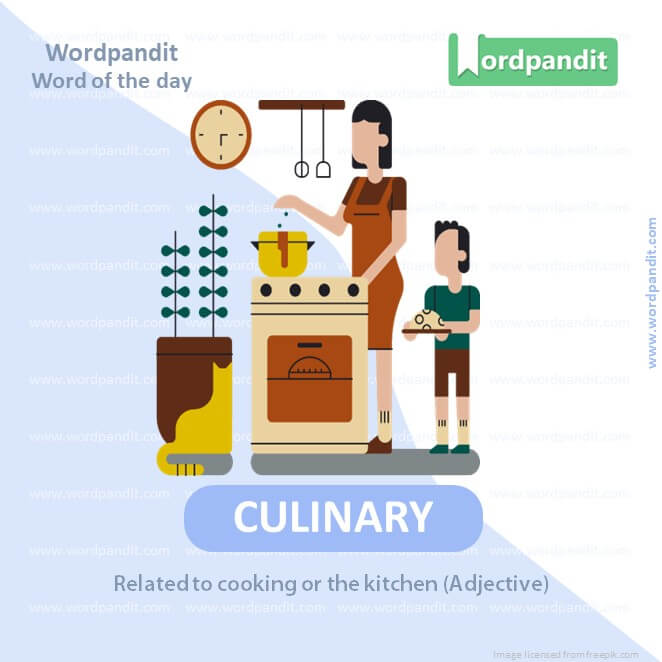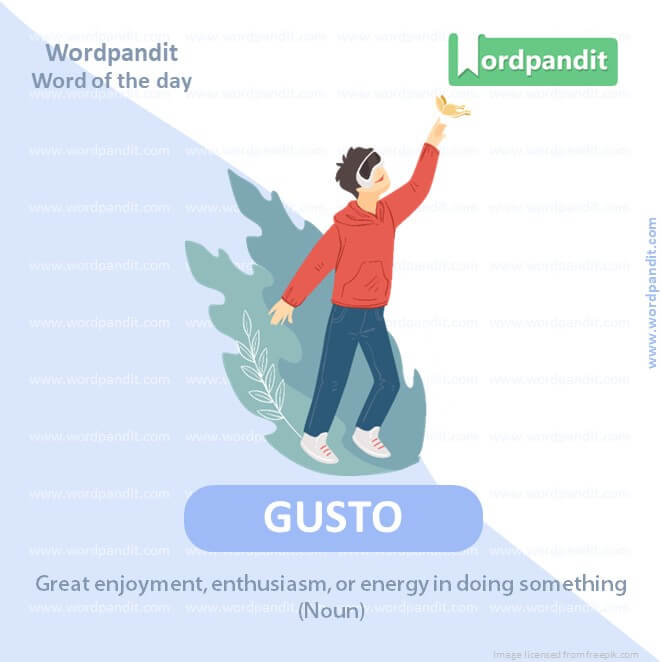Daily Vocabulary Words: List of Daily Used Words in Leading International Newspapers
Hi there. Welcome to this special section @ Wordpandit.
Our endeavour here is very simple: to highlight important daily vocabulary words, which you would come across in leading newspapers in the country. We have included the following newspapers in our selection:
• The New York Times
• The Washington Post
• Scientific American
• BBC
• The Guardian
• Psychology Today
• Wall Street Journal
• The Economist
We are putting in extensive work for developing your vocabulary. All you have got to do is be regular with this section and check out this post on a daily basis. This is your repository of words that are commonly used and essentially, we are posting a list of daily used words. Hence, this has significant practical application as it teaches you words that are used commonly in leading publications mentioned above.
Visit the website daily to learn words from leading international newspapers.

WORD-1: LURK
CONTEXT: Food shopping has become a dangerous pursuit. Nutritional horrors lurk on every shelf. Ready-meals are packed with salt and preservatives, breakfast cereals are sweeter than chocolate bars, and processed meats are packed with nitrite-preservatives, which can form harmful compounds when cooked.
SOURCE: The Economist
EXPLANATORY PARAGRAPH: Imagine you’re playing hide-and-seek. You hide quietly behind a tree and peek out just a little to see where your friends are. You’re lurking! Lurking means you’re hiding and waiting, maybe to surprise someone, but sometimes people lurk when they’re up to no good, like a cartoon villain hiding behind a rock.
MEANING: To hide or wait secretly, often with the intention of doing something not so nice (Verb).
PRONUNCIATION: Lur-k
SYNONYMS: Hide, Skulk, Sneak, Creep, Loiter, Prowl, Lie in wait
USAGE EXAMPLES:
1. The cat lurked behind the sofa, waiting to pounce on the toy mouse.
2. I noticed someone lurking in the shadows near the alley.
3. Online forums often have users who lurk without ever posting anything.
4. She had a feeling someone was lurking around her car, so she called for help.

WORD-2: PROLIFERATE
CONTEXT: In his new book, “Ultra-Processed People”, Chris van Tulleken, a doctor and television presenter, argues that upfs dominate the food supply in rich countries, and are also creeping into diets in low- and middle-income countries. As they proliferate, so do concerns about their effects on human health. Just how bad are upfs, and what do they do to us?
SOURCE: The Economist
EXPLANATORY PARAGRAPH: You know how one bunny can quickly become lots of bunnies? That’s because bunnies proliferate; they grow in number really fast. It’s like when you pour water on a plant, and it starts to grow lots of leaves and flowers. Proliferate means something is growing or spreading quickly.
MEANING: To grow or increase rapidly in number (Verb).
PRONUNCIATION: Pro-lif-er-ate
SYNONYMS: Multiply, Expand, Increase, Spread, Surge, Snowball, Escalate
USAGE EXAMPLES:
1. The bacteria proliferated quickly in the warm, moist environment.
2. Social media platforms have proliferated in the last decade.
3. The small protest proliferated into a massive movement.
4. Her collection of stickers has proliferated over the years.

WORD-3: CULINARY
CONTEXT: Processing can make healthy foods unhealthy: fruit, for instance, goes from healthy to unhealthy as it is desiccated, squeezed or sweetened. Mr Monteiro’s system, called Nova, puts foods into four “buckets”: unprocessed and minimally processed foods; processed culinary ingredients; processed foods; and ultra-processed foods.
SOURCE: The Economist
EXPLANATORY PARAGRAPH: Culinary is a fancy word that has to do with cooking and food. If you love making cookies or helping mom and dad in the kitchen, you’re interested in culinary stuff. So, when we say “culinary arts,” we’re talking about the art of cooking yummy things!
MEANING: Related to cooking or the kitchen (Adjective).
PRONUNCIATION: Kuhl-in-air-ee
SYNONYMS: Cooking, Gastronomic, Edible, Food-related, Kitchen, Epicurean, Gourmet
USAGE EXAMPLES:
1. She took a culinary course to improve her cooking skills.
2. The culinary delights at the festival were amazing.
3. He has a culinary talent that turns simple ingredients into fantastic meals.
4. The culinary traditions of the region are influenced by its history.

WORD-4: FLATLINED
CONTEXT: Not many companies whose profits have in essence flatlined over the past decade have seen their share price more than triple. By that measure Fujitec, a Japanese lift manufacturer, is a rare beast.
SOURCE: The Economist
EXPLANATORY PARAGRAPH: Imagine you’re riding a roller coaster that suddenly stops moving and just stays flat. That’s what flatlined means; it’s like when something stops changing or growing. Sometimes, doctors use this word to say someone’s heartbeat has stopped, but people also use it to talk about things that aren’t moving or improving.
MEANING: To stop growing, functioning, or showing activity (Verb).
PRONUNCIATION: Flat-lined
SYNONYMS: Stagnate, Halt, Cease, Stop, Fail, Collapse, Freeze
USAGE EXAMPLES:
1. The company’s profits flatlined last quarter.
2. His vital signs flatlined, prompting immediate medical attention.
3. The project flatlined due to lack of funding.
4. After a burst of activity, the discussion flatlined.

WORD-5: GUSTO
CONTEXT: The first songs branded “country” were recorded in Atlanta and sold in 1923. In the century since, Americans have danced and sung to country music with gusto, often sporting stetsons and boots. But today the genre is breaking new records. In August three country songs claimed the top slots on the Billboard Hot 100, America’s singles chart. It is the first time that a trifecta of country songs has reigned since the chart was launched 65 years ago.
SOURCE: The Economist
EXPLANATORY PARAGRAPH: Gusto is when you do something with a lot of excitement and happiness. Like when you jump into a swimming pool shouting “Yay!” or eat your favorite ice cream really, really happily, you’re doing it with gusto!
MEANING: Great enjoyment, enthusiasm, or energy in doing something (Noun).
PRONUNCIATION:</STR ONG> Guhs-toh
SYNONYMS: Enthusiasm, Zest, Zeal, Eagerness, Exhilaration, Passion, Fervor
USAGE EXAMPLES:
1. She sang the song with such gusto that everyone was captivated.
2. The children attacked the piñata with gusto.
3. He approached his new job with great gusto.
4. They celebrated the victory with gusto, cheering and high-fiving each other.
WORD-6: GENRE
CONTEXT: The first songs branded “country” were recorded in Atlanta and sold in 1923. In the century since, Americans have danced and sung to country music with gusto, often sporting stetsons and boots. But today the genre is breaking new records.
SOURCE: The Economist
EXPLANATORY PARAGRAPH: Genre is a word that tells you what kind of story you’re going to read or watch. Like, fairy tales, superhero stories, and detective stories are all different genres. So, if you like movies with robots and spaceships, you probably like the “science fiction” genre!
MEANING: A category or type of art, music, or literature that follows specific rules or styles (Noun).
PRONUNCIATION: Zhon-ruh
SYNONYMS: Category, Type, Style, Classification, Sort, Group, Kind
USAGE EXAMPLES:
1. She enjoys reading books from the mystery genre.
2. That band plays in a unique genre that combines jazz and rock.
3. The film festival showcased films from various genres.
4. Understanding the genre helps you appreciate the art better.
WORD-7: TRIFECTA
CONTEXT: It is the first time that a trifecta of country songs has reigned since the chart was launched 65 years ago.
SOURCE: The Economist
EXPLANATORY PARAGRAPH: Imagine you’re at a race and you guess which three runners will come in first, second, and third—and you get it right! That’s a trifecta! A trifecta is when you have three special or winning things all together. It’s like getting a scoop of chocolate, a scoop of strawberry, and a scoop of vanilla all in one ice cream cone!
MEANING: A situation or set of three things that come together perfectly or are considered perfect together (Noun).
PRONUNCIATION: Try-fek-tuh
SYNONYMS: Triple, Trio, Triad, Threesome, Hat trick, Triple Crown, Triumvirate
USAGE EXAMPLES:
1. He achieved a trifecta by winning three awards in one night.
2. The dish is a trifecta of flavors—sweet, sour, and spicy.
3. They called their successful project a trifecta of teamwork, dedication, and innovation.
4. For her, a good book, a cup of tea, and a cozy blanket make up a trifecta for a perfect evening.
WORD-8: GALLIMAUFRY
CONTEXT: The region’s diversity makes generalisations hard. It is about the size of Latin America, with 690m people, and has a gallimaufry of political structures.
SOURCE: The Economist
EXPLANATORY PARAGRAPH: Gallimaufry is a funny word that means a mix of different things all jumbled together. Imagine you have a toy box filled with all sorts of toys—cars, dolls, blocks, and stuffed animals. That’s a gallimaufry of toys! It’s a big mix of different stuff.
MEANING: A hodgepodge or jumble of different things, ideas, or elements (Noun).
PRONUNCIATION: Gal-li-maw-free
SYNONYMS: Mishmash, Medley, Melange, Jumble, Hodgepodge, Potpourri, Assortment
USAGE EXAMPLES:
1. The garage sale was a gallimaufry of household items and antiques.
2. His bookshelf is a gallimaufry of genres and themes.
3. The stew was a gallimaufry of various ingredients.
4. The art show was a gallimaufry of styles and mediums.
WORD-9: AUTOCRATIC
CONTEXT: The region has a gallimaufry of political structures, ranging from the autocratic sultanate of Brunei to Leninist Vietnam.
SOURCE: The Economist
EXPLANATORY PARAGRAPH: Autocratic is a big word that describes someone who likes to be the boss and make all the decisions without asking anyone else. Imagine a king or queen who says, “I’m in charge and only what I say goes!” That’s being autocratic. It’s like playing a game but only one person gets to decide all the rules.
MEANING: Ruling or controlling with absolute power and without consulting others (Adjective).
PRONUNCIATION: Auto-kra-tic
SYNONYMS: Dictatorial, Authoritarian, Despotic, Tyrannical, Absolute, Totalitarian, Imperious
USAGE EXAMPLES:
1. The manager’s autocratic style made employees unhappy.
2. The autocratic regime silenced any form of dissent.
3. He was autocratic in his decision-making during the project.
4. Her autocratic tendencies did not allow for a team environment.
WORD-10: SULTANATE
CONTEXT: The region has a gallimaufry of political structures, ranging from the autocratic sultanate of Brunei to Leninist Vietnam.
SOURCE: The Economist
EXPLANATORY PARAGRAPH: A sultanate is like a kingdom, but it’s ruled by a sultan instead of a king or queen. It’s a place where the sultan is the boss and makes the big decisions. So, if you’ve ever heard stories about magical lands with sultans, palaces, and treasures, those stories are probably set in a sultanate!
MEANING: A territory or country ruled by a sultan (Noun).
PRONUNCIATION: Sul-tuh-nayt
SYNONYMS: Kingdom, Dominion, Empire, Realm, Territory, Principality, Province
USAGE EXAMPLES:
1. The sultanate had a rich history of trade and culture.
2. The sultanate was known for its architectural marvels.
3. The people in the sultanate had a unique set of traditions and customs.
4. The sultanate had complex political alliances with neighboring countries.
Vocabulary New Words
Learning languages is a continuous process – an exploration that constantly presents you with vocabulary new words. However, acquiring these vocabulary new words can seem a daunting task. So, how do we effectively envelop these new words into our existing lexicon? Let’s delve into some helpful strategies.
Firstly, to remember vocabulary new words, it’s best to learn in context. This can be achieved by avid reading – a practice that introduces you to vocabulary new words naturally used in different scenarios. It helps you understand the usage of the words, their nuances and provides a cognitive map that allows for easy recollection.
Maintaining a dedicated word journal is another efficient way to remember vocabulary new words. This catalog should house the words, their meanings, synonyms, antonyms, and a sentence using each of them. This methodological approach ensures you revisit these vocabulary new words consistently, reinforcing your understanding and memory retention.
The incorporation of mnemonic devices enhances recollection of vocabulary new words. Making mental associations or creating vivid imagery related to the word’s meaning can significantly make recall easier and enjoyable, thereby ensuring long-term retention of vocabulary new words.
Additionally, regular practice using these vocabulary new words in daily conversations or written exercises ensures their transition from your passive to active vocabulary. Constant use of these vocabulary new words allows for a better grasp of their application, making you less likely to forget them.
Finally, being curious about the words you learn is beneficial. Understanding their history, finding their roots, and exploring their evolution provides a deeper insight, making the learning of vocabulary new words an exciting endeavor.
In summation, effective learning of vocabulary new words involves diving into reading, maintaining a word journal, creating mnemonics, practicing consistently, and sparking language curiosity. Using these methods, you’ll find your vocabulary expanding with new words, enriching your communication skills well into the future.











